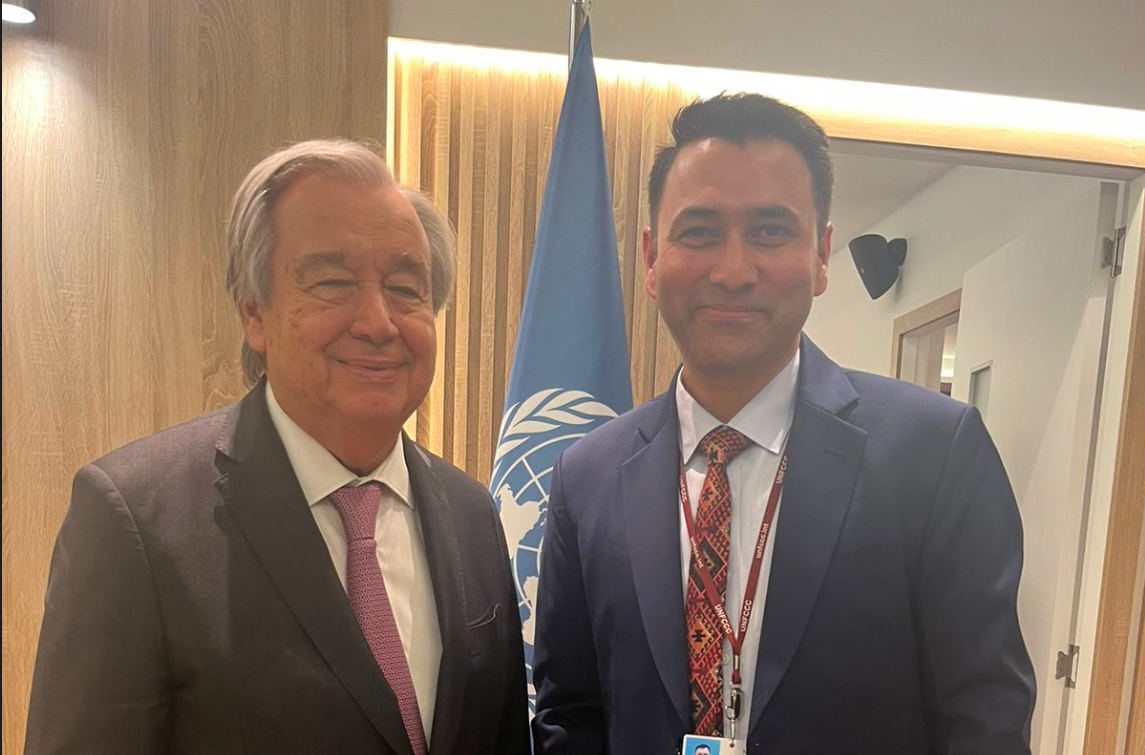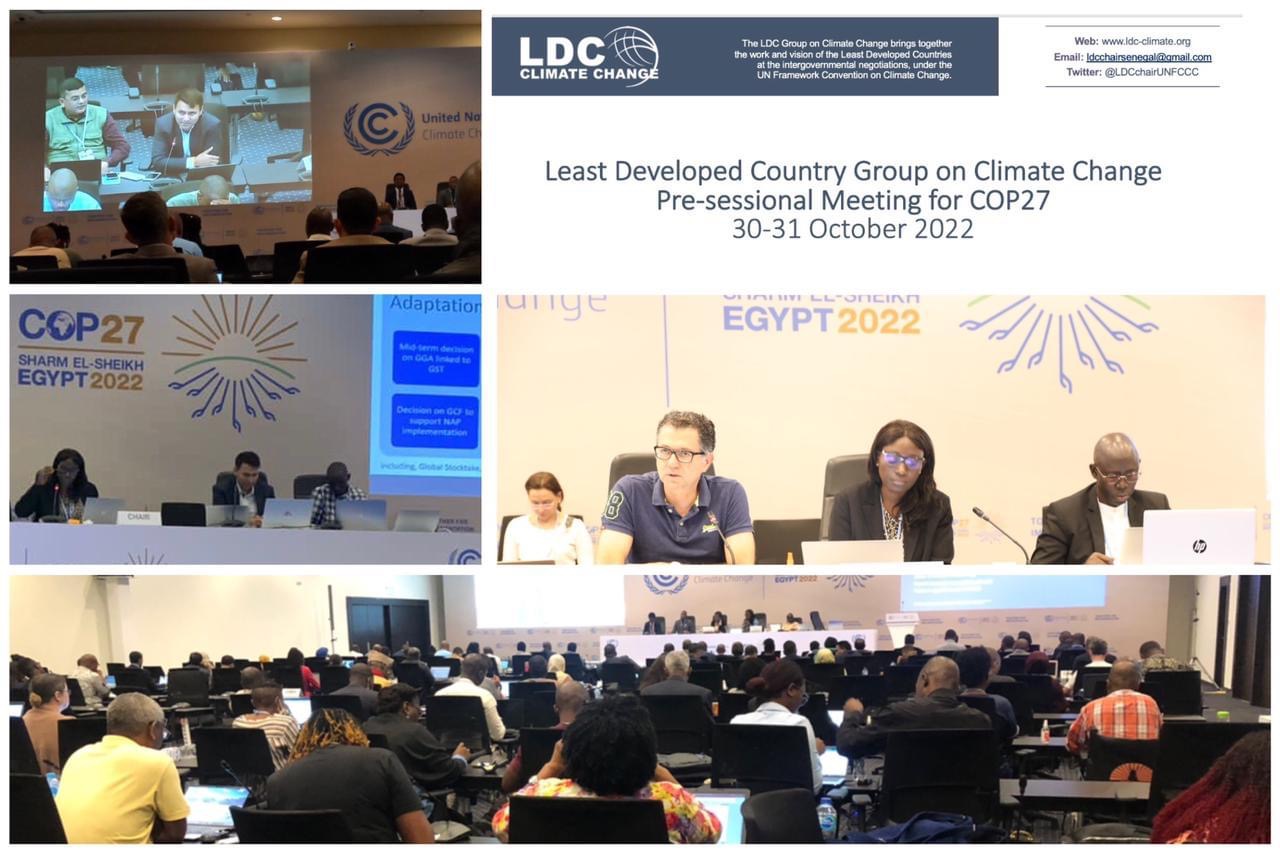‘Countries from Global South should form coalitions to amplify their negotiation power’

– PROF BASU SHARMA
Born in Bhojpur, Nepal, BASU SHARMA earned a Ph. D. degree in management from the University of Illinois at Urbana-Champaign, U.S.A. in 1983. He moved to Canada in 1984 and joined the University of Saskatchewan as an Assistant Professor. In June 1985, he was appointed as a faculty at the University of New Brunswick. He was a professor of organisational studies in the Faculty of Management from 1985 to 2023. He worked as a consultant for the International Labour Organization, the Singapore National Employers Federation, and the Singapore Institute of Labour, among others, at various times. Prof Sharma received the UNB Merit Award for extraordinary performance in research, service, and teaching during 1990, 1998 and 2005. He also received the Faculty of Business Administration’s Excellence in Research Award in November 2006 for outstanding performance throughout his career. Founder and Former Editor-in-Chief (1998-2022) of the Journal of Comparative International Management, Professor Sharma retired from the University of New Brunswick in January 2024 and now lives in Ottawa along with his family. He spoke to BHAGIRATH YOGI on the art of negotiations and how it could be employed in various settings. Excerpts of the interview:
Why are negotiations more critical than ever in today’s complex and interconnected world?
The interconnectedness of our world has intensified the importance of effective negotiation. From geopolitical hotspots to global health crises, the actions of one nation or entity can have far-reaching implications.
For example, tensions in Eastern Europe or the Middle East can destabilize entire regions, while the global impacts of climate change necessitate international cooperation. Another example–wealth inequality, both within and between countries, presents a significant challenge. Fair trade agreements and the protection of workers’ rights are crucial for addressing this issue. Similarly, businesses operating across borders must navigate complex regulatory environments and cultural differences, requiring skilled negotiation to establish partnerships and resolve disputes.
The COVID-19 pandemic highlighted the urgent need for international collaboration. Negotiations on vaccine distribution, public health measures, and economic recovery plans were essential to mitigate the global impact of the crisis.
It is through flexibility, creativity and cooperation that we can resolve conflicts, build relationships, and create sustainable solutions to the pressing challenges of our time. In fact, the ability to negotiate effectively is not just a skill but a necessity.
What are the key challenges that modern negotiators face when dealing with diverse stakeholders across different cultures and regions?
Modern negotiators in today’s globalized world face challenges stemming from cultural differences in terms of values and beliefs, which can have implications for individual behavior and social ethos. Take the case of communication style. In some cultures, communication methods could be direct and informal, while in others they could be indirect and informal. Some cultures might use a lot of nonverbal cues, while others might not do so. Misunderstandings can arise if negotiators are not aware of such differences. Hence a need to be sensitive to these differences to build trust and mutually acceptable outcomes in negotiations.
Challenges for effective negotiations emanate from political and economic differences too. For example, different countries have varying legal and regulatory frameworks that can impact negotiations. Economic disparities can influence bargaining power and priorities, while political instability can create a challenging environment for negotiations. In addition, there are two important technological challenges modern negotiators frequently face. First, technical issues such as poor internet connectivity or software incompatibility can disrupt negotiations. Secondly, protecting sensitive information and ensuring data privacy becomes a challenge in a digital age.
Overcoming these challenges requires cultural awareness, effective communication skills, flexibility, patience, and a deep understanding of the interests of the stakeholders involved. By addressing these issues proactively, negotiators can build trust, foster cooperation, and achieve successful negotiation outcomes even in diverse and complex environments.
How do we learn negotiations? Can we learn from the way children negotiate with their parents?
Negotiation is a valuable skill that can be learned and honed through various methods such as observing negotiations in action, enrolling in negotiation courses or workshops and by analyzing one’s own negotiation experience to identify strengths and areas for improvement. While children’s negotiation tactics might not always be the most sophisticated ones, observing their interactions with parents can provide valuable insights.
Children often exhibit persistence in pursuing their goals. This is a quality that can be beneficial in negotiation. Children can be creative in finding solutions and compromises, a skill that can be applied in adult negotiations too. Children are often more adaptable than adults, willing to adjust their strategies based on the situation. Also, children are not afraid to express their emotions, which can be a powerful tool in negotiation. More importantly, children negotiate with their parents without any assumptions, whereas adult negotiators generally come to the negotiation table with preconceived notions about the counterparty. Unrealistic and false assumptions can lead to negotiation failure or suboptimal agreements.
It is important to note that children’s negotiation skills are still developing, and their tactics might not always be effective or appropriate in all situations. But observing children can provide valuable insights. It is important to combine these insights with formal training and practice to develop a well-rounded understanding of negotiation.
What are some strategies and techniques that are particularly effective in resolving conflicts during negotiations?
A blend of strategies and techniques are needed for resolving conflicts during negotiations. These strategies and techniques include finding the underlying interests of the counterparty, active listening, and taking a problem-solving approach rather than pursuing a “you vs. me” framework. How one looks at the counterparty in negotiations very much depends on what frame of reference (called framing in negotiation literature) one uses. For example, one can approach a negotiation event as an opportunity for joint gain, developing a relationship, and building trust. One can also use it for negotiating over a position to win, whether reasonable or not, using all kinds of unethical tactics. But the outcome of such negotiation will not be optimal because it ignores the legitimate interests of the counterparty, which would hurt the relationship between the negotiating parties and could lead to problems in implementing the negotiated agreement.
A classic approach developed by negotiation experts and scholars at the Harvard Negotiation Project asserts that people should negotiate based on principles, not positions. They articulate four such principles: separate people from the problem; focus on interests, not positions; invent options by being creative and through brainstorming; and use objective criteria to decide on a debatable issue. Using the principled approach, a negotiator can change a distributive (you lose, I win) negotiation into a win-win negotiation. The story of one orange and two sisters, first told by the mother of modern management, Mary Parker Follett, shows how a “win-lose” negotiation can be converted to a “win-win” one.
The story goes something like this—There is one orange on the table in a dining room. Two sisters walk into the room, and both want it. They both argue about how to share it for a while and decide to cut the orange in half. One sister takes her share, eats the orange and throws the peel away. The other throws the orange away and uses the peel for making marmalade from her share. What happened here? Half the peel and half the orange got wasted. If the sisters had discussed why they wanted the orange, the outcome for both would have doubled.
We see the principle—focus on interest, not position—for an optimal outcome from a negotiation in action here.
Do you see any prospect of deploying the latest technology like artificial intelligence in negotiations of the future?
Yes, I do think that artificial intelligence (AI) is poised to play a significant role in future negotiations as data and information play an important role in formulating a negotiation agenda and devising negotiation strategies. AI can analyze vast amounts of data to identify patterns and trends, which can be tremendously helpful. Also, AI-powered platforms can create virtual negotiation environments. This will allow parties to negotiate remotely and efficiently, reducing travel inconvenience, cost and time.
Two other benefits of AI tools are (a) predictive analytics and (b) automated negotiation assistance. AI can predict potential outcomes of negotiations based on historical data, helping negotiators anticipate challenges and develop contingency plans. AI-powered assistants can handle routine tasks such as scheduling meetings, drafting documents, and summarizing key points, freeing up negotiators to focus on more strategic aspects of negotiation.
AI tools could also be used to track progress, ensure compliance, and make adjustment to the agreement as needed. Thus, there is a critical role for AI in negotiations and it will continue to expand in the future.
How could small countries negotiate for better outcomes with their giant neighbors?
Small countries often face significant challenges when negotiating with larger, more powerful neighbors. However, they can still achieve favorable outcomes, provided they use the right strategies and hone negotiation skills and use them appropriately.
Insisting on using objective criteria is one of the most useful strategies for small countries while negotiating with larger, more powerful neighbors. By doing so, they can rely on international law, treaties, and organisations in showing how fair and equitable the counterparty’s position is. By aligning their actions with international norms and seeking support from global organisations such as the United Nations, World Trade Organization and International Court of Justice, they can gain legitimacy and create a level playing field. They can also use public diplomacy to gain international sympathy and support. By highlighting the small country’s challenges and the larger neighbor’s potential to overreach, they can influence global public opinion and put moral pressure on the larger country.
Small countries can also invest in developing high-level negotiation and diplomatic skills within the country’s leadership and diplomatic corps. Skilled negotiators can often achieve better outcomes by understanding the larger neighbor’s interests and finding creative solutions.
How could countries from the global South—that largely had no role in creating a global problem like climate change—negotiate with rich, Western countries which were primarily responsible for the crisis?
To begin with, countries from the Global South should use the powerful principles of interest-based negotiation developed by the Harvard Negotiation Project. Of the key principles as mentioned earlier (answer to the question on effective strategies in resolving conflict), invoking the principle namely “Use objective criteria, while negotiating with a hard bargainer or a more powerful counterparty” could provide the most important strategic advantage.
First, countries from the South should emphasize the historical responsibility of developed countries in causing climate change. The West’s unbridled industrialisation has been the primary driver of greenhouse gas emissions, and this should place a greater burden on them to provide financial support, technology transfer, and capacity-building assistance to countries from the South. By highlighting this historic responsibility, the Global South nations can make a strong case for why rich, Western countries should take on a larger share of the costs associated with climate action.
Secondly, countries from the Global South should advocate for climate justice by upholding the principle of “common but differentiated responsibilities.” What this means is that while all countries must contribute to addressing climate change, those with a greater historical contribution to creating the problem should bear a larger share of the cost in solving it. The Global South countries can also form coalitions to amplify their negotiation power, and thereby enabling them to push for binding commitments that address their specific needs and vulnerabilities.
Finally, the Global South nations should insist on fair transition mechanisms and demand increased funding for adaptation and resilience efforts. As they transition towards greener economies, it is critical that they receive necessary support to ensure that this shift does not impede their development efforts. All in all, ensuring affordable access to green technologies and securing compensation for economic losses resulting from climate policies initiated by developed countries should be central to their negotiations. This approach would ensure that the Global South is not disproportionately burdened by a crisis they had little role in creating.



















Facebook Comments